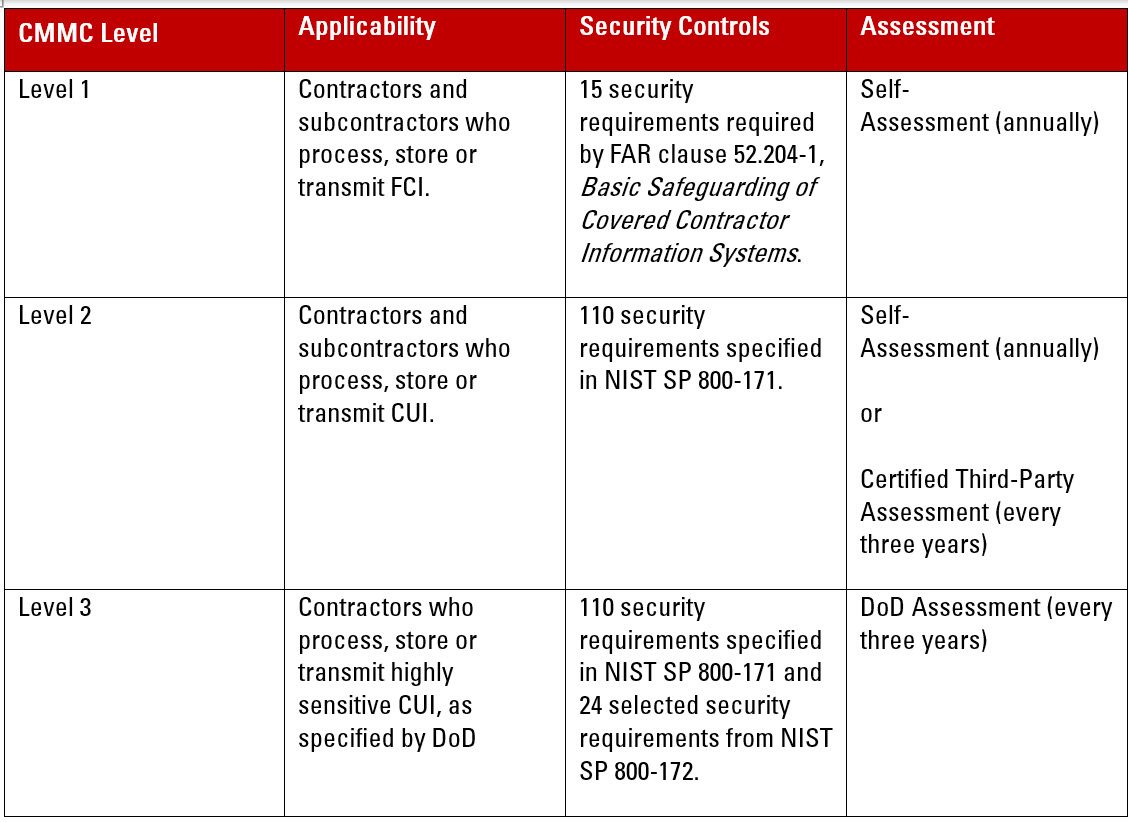Alert 08.28.25
FAR Council Increases Acquisition-Related Thresholds for Inflation
The Federal Acquisition Regulatory Council issued a final rule adjusting numerous acquisition-related thresholds for inflation as required under 41 U.S.C. § 1908.
Alert
Alert
By Meghan D. Doherty, Aaron S. Ralph, Brian E. Finch, Marcus Burden
09.15.25
After years of anticipation, the Department of Defense (DoD) has published the final Cybersecurity Maturity Model Certification (CMMC) to the Defense Federal Acquisition Regulation Supplement (DFARS) rule (the Final DFARS Rule). This rule revises the DFARS to implement the CMMC program in solicitations and contracts. As discussed in our prior alert, this rule follows the passage of the October 15, 2024, final rule establishing the requirements of the CMMC program (the Final Program Rule) and setting forth a three-year phased roll out period. The Final DFARS Rule will go into effect on November 10, 2025, kicking off this roll-out period.
Background and Basics
As we have previously reported, CMMC is a program developed by the DoD to protect the Defense Industrial Base from cyber threats. Under this program, DoD contractors and subcontractors will be required to achieve certain levels of cybersecurity maturity. DoD first announced the CMMC program in 2019, then issued an initial version of the program in November 2020. In November of 2021, DoD announced that it would be overhauling the existing CMMC framework and replacing it with CMMC 2.0. The purpose of CMMC 2.0 was to restructure the CMMC program and to reduce the cost and administrative burden of achieving cybersecurity compliance. On December 26, 2023, DoD issued a proposed rule and related guidance implementing many aspects of the CMMC program. This rule was finalized on October 15, 2024, and went into effect on December 16, 2024 (the Final Program Rule). The rule specified, however, that CMMC requirements would not begin appearing in contracts and solicitations until the instant DFARS Rule was finalized. Thus, the release of the Final DFARS Rule marks an important development for DoD contractors and subcontractors.
The CMMC program is comprised of a tiered-certification model consisting of Levels 1 through 3. Contractors that achieve Level 1 will be permitted to process, store or handle Federal Contract Information (FCI). Contractors that achieve Level 2 will be permitted to process, store or handle Controlled Unclassified Information (CUI). Contractors that achieve Level 3 will be permitted to handle highly sensitive CUI, as designated by DoD. The following chart summarizes the requirements to achieve each CMMC level.

Timing and Implementation
During the three-year roll out period, DoD program offices will have discretion to include CMMC requirements in solicitations and contracts. In this regard, the Final DFARS Rule states that “the clause will be prescribed for use if program managers and requiring activities make a determination to apply a CMMC requirement to contracts, excluding awards solely for the acquisition of commercially available off-the-shelf (COTS) items.” This is a change from earlier iterations of the rule, which suggested that CMMC requirements would apply to nearly all DoD contracts from day one. Notably, the Final DFARS Rule does not provide any insight into which contracts DoD initially plans to incorporate these requirements. Beginning November 10, 2028, DoD will be required to include CMMC requirements in all solicitations and contracts in which the contractor will be required to use contractor information systems to process, store, or transmit FCI or CUI.
Other Notable Provisions
Looking Ahead
With the passage of the Final DFARS Rule, contractors and subcontractors that have not fully implemented the relevant requirements should take steps to do so without delay. To remain eligible for new contract opportunities, contractors must also complete a self-assessment or obtain a third-party assessment and upload those results to SPRS. Contractors should also develop systems for ensuring continued compliance for the life of the contract and to confidently make the annual affirmation of compliance. Finally, prime contractors should continue engaging with their key subcontractors and suppliers to ensure that they will also remain eligible to perform new work subject to CMMC requirements.